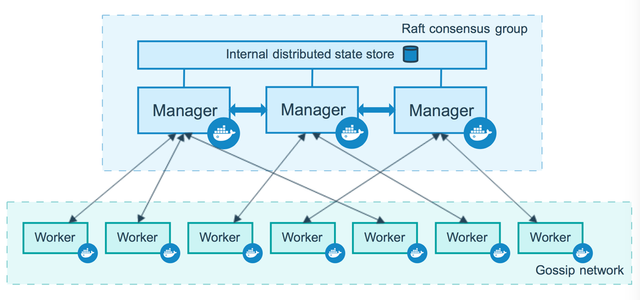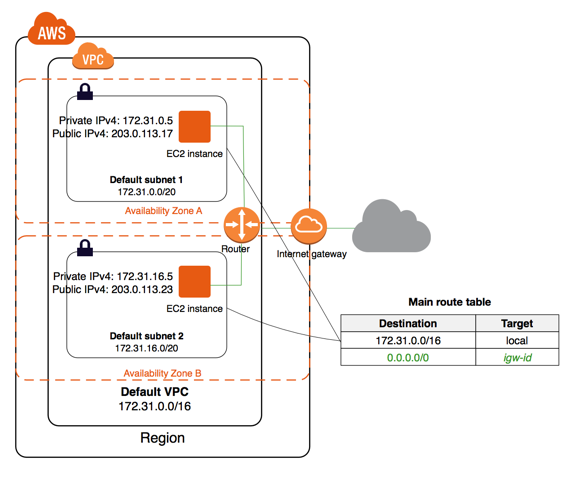DevOps Journal #4 - Docker Notes/Links
Docker Machine, Compose, and Swarm
I'm in the process of setting up and testing a Docker Swarm using Docker Compose 3.0. I'm using this stack to test with because it's a multi-container setup I'm familiar with.
The stack is written in docker-compose 2 so it has to be adjusted for version 3. A good sample case to work through as the situation is similar for most of our stacks.
I had no problem deploying with docker swarm commands directly, after creating an overlay network and adding a node to it. The next step is moving the network to be defined in the docker-compose.yml file. With this I had trouble because the compose file failed to see the network. I think I've found the solution to that here.
I haven't had a chance to test yet because I'm also in the process of starting to use docker-machine for the creation of containers rather than manually adding them to my swarms. I'm thinking to create a server which will host a docker-machine & docker manager, with Digital Ocean and AWS credentials setup.
That way people with an authorized ssh key can access the server for management purposes.
We'll probably want multiple docker manager nodes for each stack, but I'm thinking we only need one instance of docker-machine to manage everything. Having multiple docker-managers is considered a high-availability setup, HA for short.
Notes
The rest journal is basically me dumping my notes from today.
DevOps - Deploying to Docker Swarm with Compose 3.0
- Docker Swarm Visualizer - An open-source tool for viewing your swarm.
High Availability (HA)
Volumes
I have to look more into attaching volumes. I know in the past I've run EC2 instances without setting up a volume.
When I used all the storage it automatically alocated more at a premium price. By attaching my own volume purchased ahead of time the cost was less than 10%. Can't remember the details of why that was right now. It might have been that the storage I attached was HDD instead of SSD
Though I don't plan to store any large files or content on the docker images themselves.
Docker Machine
- Video on Docker machine showing using Digital Ocean auth token to quickly spin up machines.
AWS VPC Required
This section is only applicable if you're using docker-machine to create EC2 instances.
You have to have VPC on Amazon setup to use Docker Machine with EC2. I thought this was a problem for me based on an error message but the actual problem was in the IAM configuration for the AWS credentials I was using.
Make sure the credentials have authorization for your VPC and EC2. Not having a default VPC probably isn't your problem unless you explicitly deleted the one Amazon creates for you by default.
VPC = Virtual Private Cloud
When we create a default VPC, we do the following to set it up for you:
- Create a VPC with a size /16 IPv4 CIDR block (172.31.0.0/16). This provides up to 65,536 private IPv4 addresses.
- Create a size /20 default subnet in each Availability Zone. This provides up to 4,096 addresses per subnet, a few of which are reserved for our use.
- Create an internet gateway and connect it to your default VPC.
- Create a main route table for your default VPC with a rule that sends all IPv4 traffic destined for the internet to the internet gateway.
- Create a default security group and associate it with your default VPC.
- Create a default network access control list (ACL) and associate it with your default VPC.
- Associate the default DHCP options set for your AWS account with your default VPC.


I love swarm and compose. It just feels like things are moving more into the direction of Kubernetes and away from swarm at the moment.
I had considered kubernetes.
The problem with kubernetes is I would have to explain to others in the company why I'm switching.
Even though we're not using swarm now. To use kubernetes instead of Swarm will be seen as bringing in a new tech.
Kind of stupid but I'm just going with whats easy.
I'm not sure accurate this is, but someone told me that to motivate Kubernetes in a company as opposed to swarm is easy, because there is more paid support and help available for Kubernetes as opposed to swarm. For example there are quite a few places that are starting to offer "Kubernetes as a service". At the end of the day I think your use case is very important and also that you work with something that you feel is gonna be future proof, in other words try think which one will stick around longer, Kubernetes or Docker swarm. But yeah both are really really really cool in their own way.
Maybe I will try it anyways. I'm seeing a lot of people are saying kubernetes is better.
ocker matchine! sir @kirkins thank you for your sharing. I learn maything from your blog. I am a fan of you. keep posting like these. your blog is so much informative sir. many many best wishes for you sir
it is technical post ,anyway i like your intelligence dear,it is so helpful for others.Thank you for sharing, so beautiful many of them,Your information is quite useful and beneficial.
best of luck
thanks you so much for the answer in my post,infact i m arabic girl or not know english well,i hope you can understand what i want to say,or it is difficult to me reply others.i m really thanks to favour me so thanks